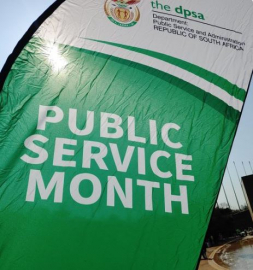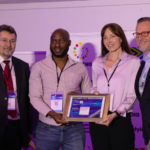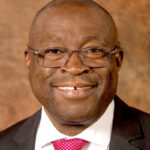Acting Public Service and Administration Minister Thulas Nxesi says he believes that the public service has the inherent capacity to “walk the talk” and deliver on its constitutional obligations to citizens.
“We have seen the remarkable progress made in service delivery since democratization in 1994, and more so, since the Batho Pele programme was introduced in 1997,” Nxesi said.
Speaking at the launch of Public Service Month at Freedom Park in Pretoria on Thursday, Nxesi said the public service has skilled, competent and resourceful officials on the job, working daily at the coalface of service delivery amid serious constraints.
He said as far back as 2013, the Diagnostic Review of the National Planning Commission identified uneven capacity within and between government departments as a challenge and potential threat to the ability of the public service to deliver quality services throughout the country.
“As a responsive government, we have been addressing this specific challenge through a variety of targeted capacity-building interventions by the DPSA in partnership with the National School of Government, including initiatives such as the District Development Model.
“Notwithstanding these interventions, I believe that our public service has the inherent capacity to walk the talk and deliver on its constitutional obligations to citizens,” Nxesi said.
Nxesi said government has the capacity to make even greater progress in improving service delivery and creating a citizen-centric public service.
“All the necessary ingredients are in place. We have supporting legislation, policies and regulations that are reviewed regularly. We have skilled, competent and resourceful officials on the job, working daily at the coalface of service delivery amid serious constraints.
“As government we have introduced the National Anti-Corruption Strategy as a necessary response to this rampant corruption.
“We recognize that this strategy will only succeed if we work in partnership with our compatriots in the private sector and civil society who are as committed as we are to a South Africa characterized by high standards of integrity and respect for the rule of law.
“We also acknowledge that you, our public servants, are our first line of defense against corruption,” Nxesi said, adding “we must defend our freedom against the scourge of corruption that is eroding our democratic values and our dream of being a capable, ethical and developmental State”.
Nxesi said government cannot professionalize the public service in a context where poorly qualified individuals are being parachuted into positions through political patronage.
“These practices, wherever they occur, are inconsistent with the constitutional principles that underpin public administration and they must accordingly be stopped,” he said.
Deputy Minister, Dr Chana Pilane-Majake, explained that Public Service Month is commemorated annually to remind the public about the important role of public servants in order to mobilize political will and resources to address national, provincial and local government challenges.
“The PSM is a country programme meant to promote good governance with the continental programme being the AU Africa Public Service Day (APSD).
“PSM focuses on the public service machinery, how it discharges its constitutional responsibility to deliver services to the citizenry, as well as give recognition to diligent public servants upholding the values and principles of public service and administration,” she said.
This year, Public Service Month is celebrated under the theme: Batho Pele Revitalization – Walking The Talk.
The Public Service Month serves as a reminder of what it means to serve communities and to also look at the impact government has, especially around issues of service delivery.
This year, government celebrates the 25th anniversary of the Batho Pele White Paper as a framework for the transformation of public service delivery in South Africa, and also celebrates the 25th anniversary of the Constitution that was signed into law by former President Nelson Mandela.












